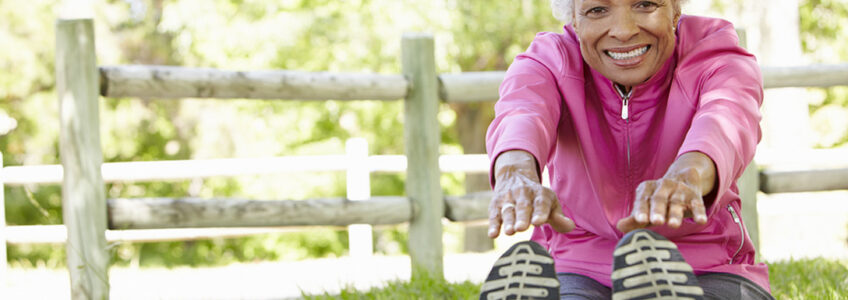
Core muscles are essential for good health and movement, especially as we age. A strong core helps seniors maintain balance, stability, and functional independence, lowering the risk of falls and boosting quality of life. Elder care services can help seniors develop and maintain core strength in a safe and effective manner.
Core Strength Benefits for Seniors
Core muscles support the spine and pelvis, acting as a stabilizing force throughout the body. Weak core muscles can result in poor posture, imbalance, and an increased risk of falls, which are the main cause of injury among seniors. Beyond improved balance and stability, core strength also offers the following benefits:
- Enhanced Mobility and Flexibility: A strong core provides greater movement control and flexibility. Everyday activities, including bending, twisting, standing, and even getting out of a chair, rely on these muscles. Improved core strength allows seniors to live independently for longer periods of time.
- Reduced Risk of Chronic Pain: Weak core muscles can lead to back pain, which is a typical complaint among seniors. Strengthening these muscles helps relieve pressure on the spine and pain caused by bad posture or misalignment.
- Improved Overall Health: Core workouts frequently work numerous muscle groups, which promotes improved circulation and cardiovascular health. Regular exercise is also beneficial for mental health, which is critical for seniors’ quality of life.
How Elder Care Helps Seniors Improve Core Strength
Elder care provides tailored assistance to help seniors develop and maintain core strength. Here’s how they can help:
Guided Exercise Programs: Elder care providers can collaborate with physical therapists to ensure seniors are doing their suggested exercise programs. These programs may focus on improving core strength with low-impact exercises, such as sitting leg lifts, pelvic tilts, and modified planks to ensure safety and efficacy.
Supervision: When doing these exercises at home, elder care can monitor seniors to ensure they’re using the appropriate form in order to avoid injury. Additionally, they provide support and encouragement for seniors to complete the exercises consistently. This is essential, as maintaining a consistent routine is important for long-term success.
Incorporating Gentle Practices: Elder care professionals may also encourage seniors to explore gentle exercise forms, such as yoga, pilates, and Tai Chi. While these routines are gentle, they also provide significant value when it comes to strengthening the core.
Nutrition and Recovery: A proper diet promotes muscle repair and growth. Elder care providers help seniors plan their meals to ensure they get enough nutrients, such as protein and vitamins, to supplement their exercise schedule.
Practical Tips for Seniors to Strengthen Their Core
Whether seniors are already active throughout the day or more sedentary, there are a few things to consider when starting core strengthening, including the following:
- Start Slowly: Start with easy workouts like seated marches or standing side leg raises.
- Focus on Form: Proper alignment is essential for avoiding injuries.
- Use Support: Chairs, resistance bands, and stability balls can all help.
- Listen to the Body. It’s important for seniors to rest and avoid overexertion to prevent strain.
Strong core muscles are necessary for seniors to live active, independent lives. Elder care can help them build their core by focusing on balance, mobility, and overall strength. By improving their core, seniors can improve their overall well-being and enjoy a healthier life.
If you or someone you know needs Elder Care in Buffalo, MN, contact Adara Home Health. We provide quality and affordable home care services for many fragile or senior members in the communities we serve. Call us at (888) 525-7742 for more information.
Sources:

